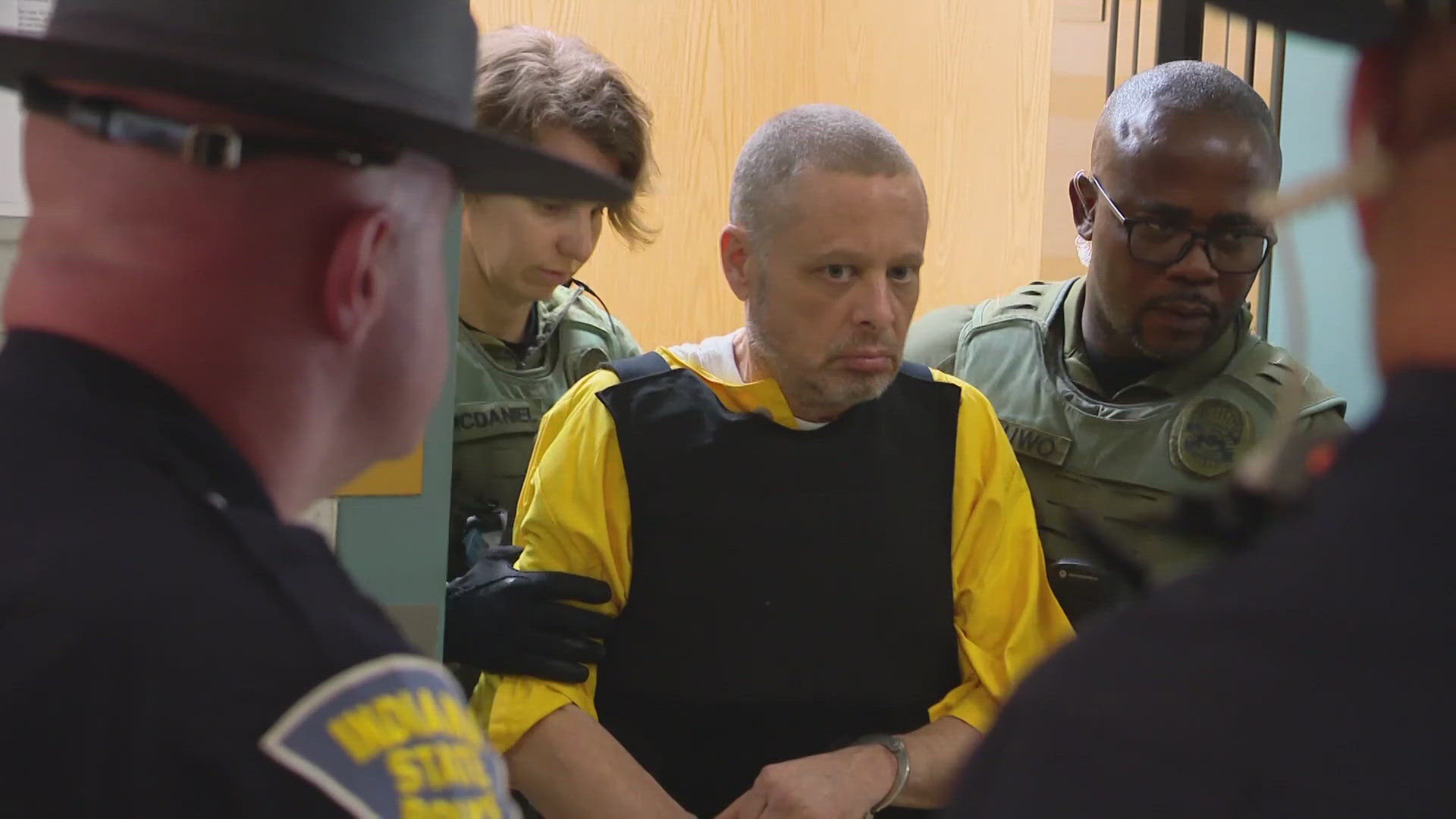DELPHI, Ind. — 2,802 days since the bodies of Abby Williams and Libby German were found near the Monon High Bridge in Delphi, the man accused of killing the two teenagers is about to stand trial.
Opening statements for Richard Allen’s double murder trial begin Friday morning, Oct. 18.
13 Investigates reporter Bob Segall spoke with 13News legal analyst Katie Jackson-Lindsay about the upcoming legal proceedings.
“It probably has been and will continue to be one of the most unique cases in the history of our state, and to watch it play out now, I think the world will be watching,” Jackson-Lindsay said.
Jackson-Lindsay, who has tried both sides of murder cases as a former deputy prosecutor and as a criminal defense attorney, says jurors will hear very different versions of what happened in Delphi. She discussed what to expect and the key themes to watch for during the highly-anticipated Delphi murders trial.

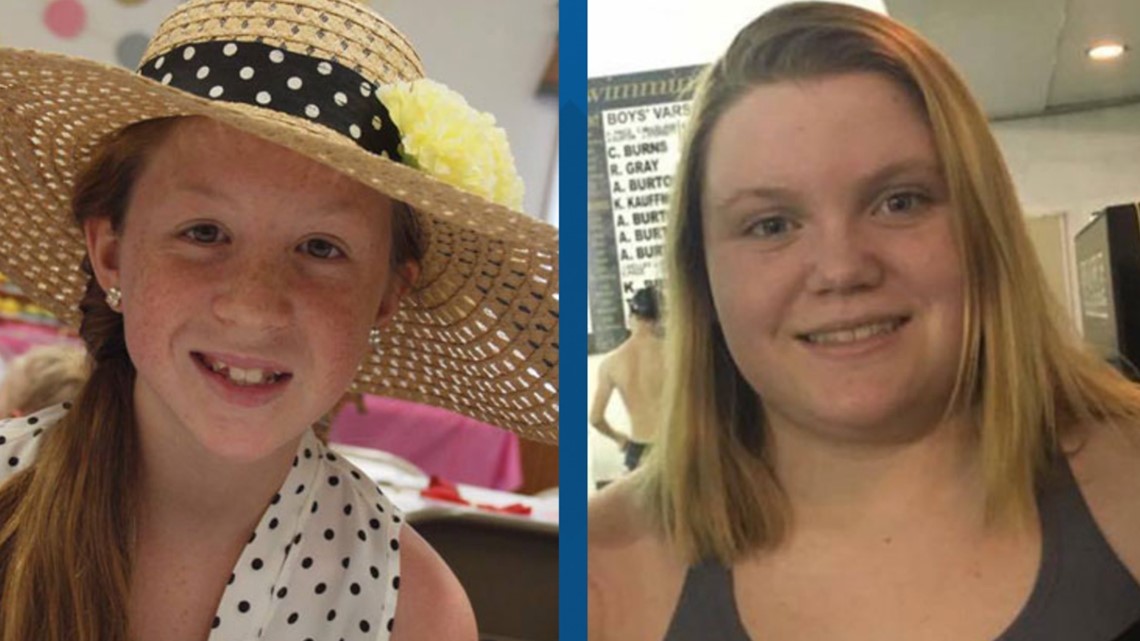
The jury
Sixteen Allen County residents were selected earlier this week to serve on the jury. Twelve of those people will begin the trial as jurors and four will serve as alternates.
The jury is made up of eight women and four men. The four alternate jurors are two men and two women.
They were chosen from among 88 Allen County residents who were interviewed during eight separate rounds of questioning by Carroll County prosecutor Nick McLeland and Allen’s defense team.

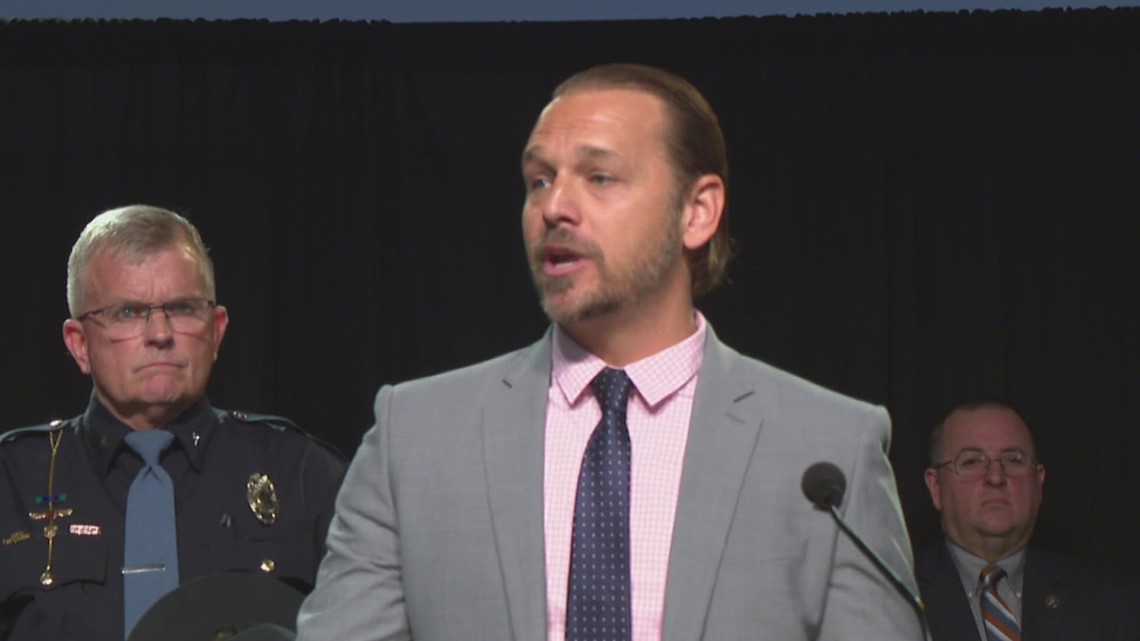
The jurors come from all walks of life, including a nurse, a transportation director and a school counselor. Several of the jurors said they had seen media coverage about the high-profile murder case prior to being selected for the jury, but all pledged to keep an open mind and to render a decision based on the evidence presented during the trial.
They were sworn in Thursday morning and then transported to a hotel closer to Delphi. The sequestered jurors will be able to have visits from their families on Sundays, the only day of the week without court expected to be in session.
The crime scene
When the Carroll County prosecutor presents the state’s case to the jury, Jackson-Lindsay said the early focus will be on painting a picture of the crime scene.
“We don’t know every single piece of evidence that was collected. They’re not required to put that in the probable cause affidavit. We don’t know how significant every piece of that evidence is, and so learning more about the crime scene itself and educating this jury on that is going be really important for the prosecution,” Jackson-Lindsay said.
The evidence will also include a detailed explanation and description of the victims’ manner of death.
Establishing that Allen was actually at the scene of the crimes will be crucial for the state if prosecutors want to convince jurors of Allen’s guilt, according to Jackson-Lindsay.
“That’s so important because at this juncture, Richard Allen is the only person charged with these murders. Richard Allen is the only one alleged to have committed the crime at all,” Jackson-Lindsay said. “They have to be able to put Richard Allen there, I think, to have credibility with this jury.”
Allen denies having anything to do with the murders, but police say he did admit to investigators that he was on the walking trails near the Monon High Bridge – not far from the crime scene – on the day of the murders. And the jury will hear that.

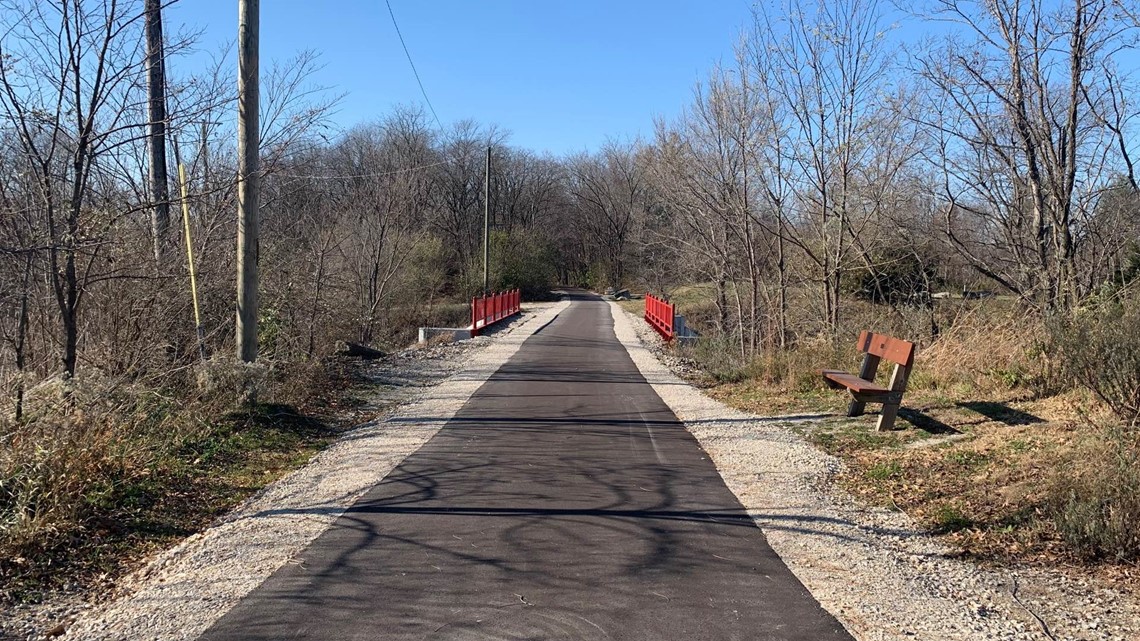
“The state’s going to use that as a very burning piece of evidence to, first and foremost, at least put him in the area and give him opportunity, and so that will be challenging for the defense to overcome because it puts him there,” Jackson-Lindsay said. “But on the other hand, that can also cut both ways. Because if he truly committed these crimes, why would he admit that? That’s what the defense will argue.”
The prosecutor will also tell jurors about a bullet found at the crime scene. Even though court records suggest the girls’ deaths were caused by a knife – not a firearm – investigators say forensic testing conducted on an unfired bullet found near the girls’ bodies show it matches a gun that belonged to Allen.
“It’s a pretty critical piece of evidence for the prosecution because it’s the single piece of physical evidence, as I understand it, that links Richard Allen to the scene,” Jackson-Lindsay said.

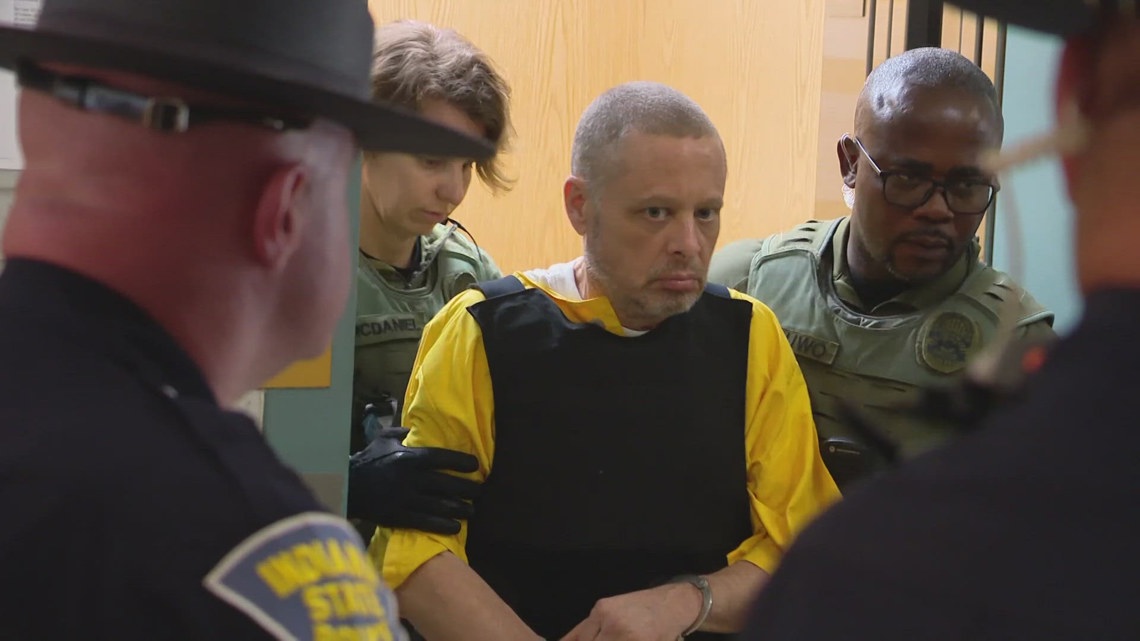
During an abbreviated opening statement delivered to jurors during the jury selection process, McLeland said the state will prove that Allen “brutally murdered Abby and Libby” in the woods near Delphi’s Monon High Bridge, and that he left behind a clue – that unfired bullet – before he “casually walked back to his car and went home.”
The defense team wanted jurors to visit the crime scene to see it for themselves. However, in a hearing Thursday morning, Allen's lawyers dropped their request to have jurors taken there.
“That makes very little sense to me, trying to keep the jury away from the scene of the crime,” Jackson-Lindsay said. “Allowing jurors to see the location – especially when you’re dealing with a complex crime – can be really beneficial to understanding the landscape and the facts, and I think allowing them to experience that is actually helpful to both the state and the defense.”
Attacking the evidence
The 13News legal analyst says the defense team will challenge each piece of evidence presented by the state, including the controversial science of linking an unfired bullet to a specific gun.
And when the state tells the jury that Allen allegedly confessed to the murders while in prison, his defense team will push back on that, too.
“As the state’s presenting this evidence, we’re going to watch the defense challenge every single one of these witnesses in cross-examination,” Jackson-Lindsay said.
She says cross-examination is when the defense team will try to undermine the credibility of police, how they investigated the murders, and how they singled out Allen while allegedly downplaying compelling evidence that points to other possible suspects.

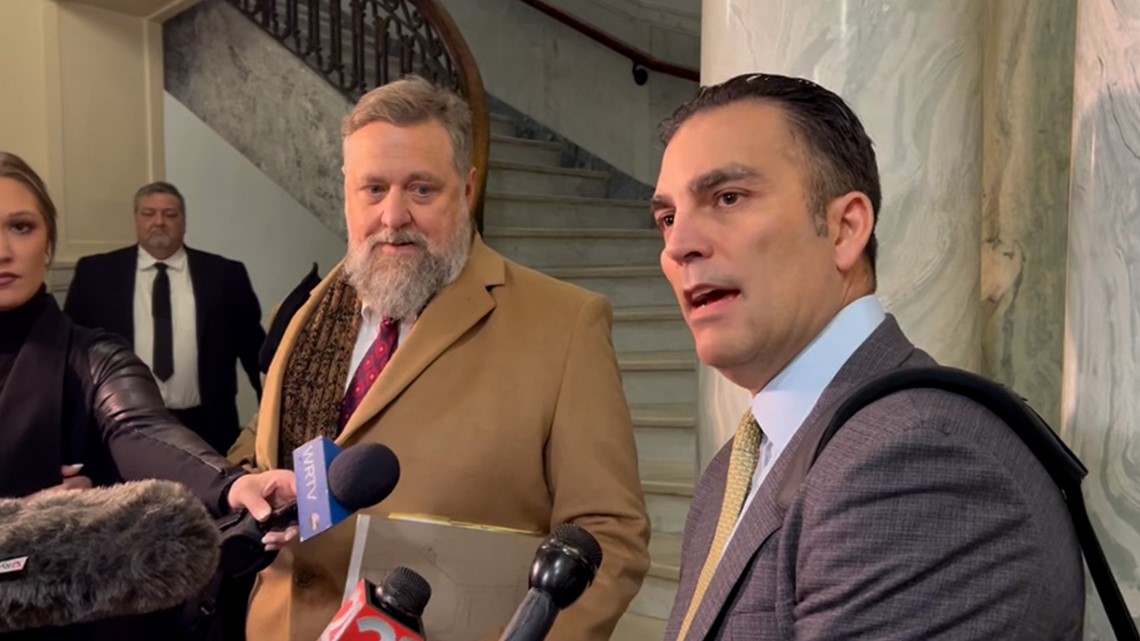
“We plan on being very critical of the state police. We will do that respectfully but forcefully,” defense attorney Andrew Baldwin told jurors as they were being interviewed for jury selection.
And the defense wants the jury to hear an alternate theory about the murders: their claim that Abby and Libby were murdered not by Allen, but by people who were conducting a pagan ritual sacrifice.
“We’re going into this trial with a roadmap of the entire defense strategy. And that is that someone else, some other guy other than Richard Allen, committed this crime,” Jackson-Lindsay said.
What will the judge allow?
One of the big questions still lingering is whether Special Judge Frances Gull will allow the defense to call their own witnesses to back up that story, or if she will instead rule their theory is not credible enough to allow those witnesses to testify before the jury.
Following a pre-trial hearing this summer to consider that question, Gull ruled the defense cannot present their alternate perpetrator witnesses and evidence to the jury because, according to the judge, the defense had not proven a direct link between the alternate suspects and the murders.

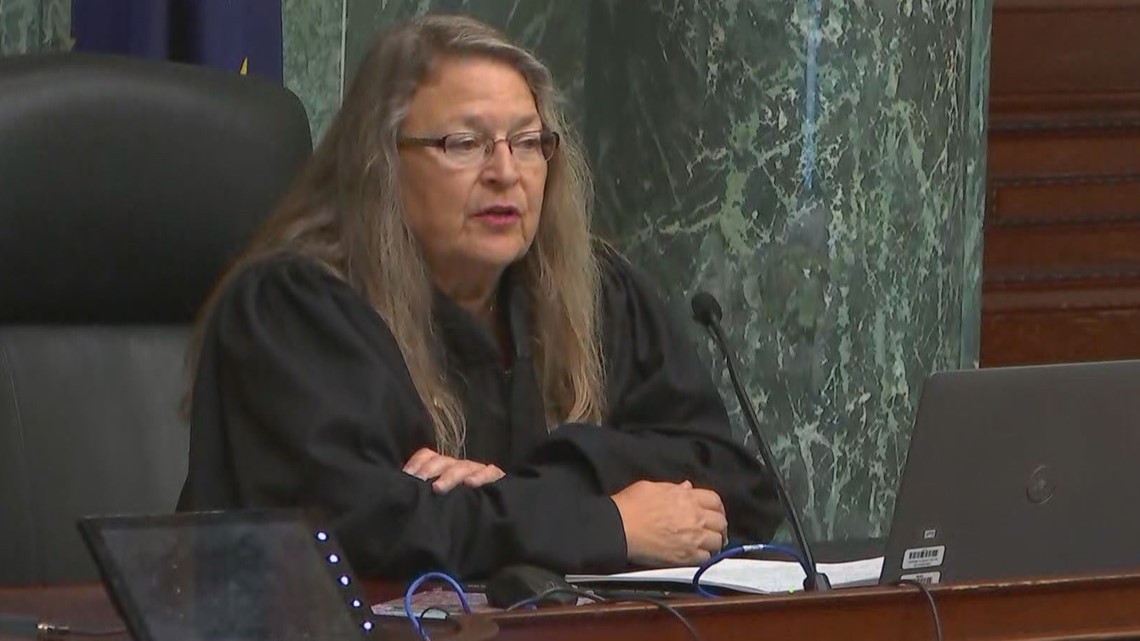
But the defense team will get another chance to change the judge’s mind during the trial. During what is called an “offer to prove,” Allen’s attorneys will again be able to call witnesses and present evidence in an attempt to show whether credible evidence exists to suggest someone other than Allen committed the murders. Those witnesses and evidence will be presented after the jury is asked to leave the courtroom. If the defense is successful in changing the judge’s mind, the jury will then get to hear the testimony and see the evidence.
Jackson-Lindsay said even if the judge rules the evidence is still inadmissible and cannot be presented to the jury, the legal strategy would allow the defense to preserve the witness testimony in the court record in the event that Allen is convicted and wishes to file an appeal.
How long the Delphi murders trial will last has also been a subject of debate in the months leading up to the trial. The trial was delayed from its May 2024 start date after the defense asked Gull to extend the scheduled three-week trial an additional two weeks. The judge reluctantly agreed, but she has made it clear she expects the trial to be concluded by Nov. 15. That might be challenging based on the number of witnesses the state and defense plan to call during the trial.
During jury selection, McLeland said the state intends to call more than 50 witnesses to testify. The defense named more than 120 witnesses, including one the defense team expects to be on the witness stand for a full three days.
Also worth watching is the interactions between the judge and the defense lawyers. Both have previously claimed the other is incompetent and should be removed from the case, requiring the Indiana Supreme Court to intervene in the dispute. (Justices decided both should remain.) The defense and prosecutor have also been engaged in a public dispute over the way in which evidence was handled. Jackson-Lindsay said it is important that all parties set aside their animosity to ensure a fair trial.
“At the end of the day, even if it wasn’t Richard Allen, someone did this. Someone has caused this horrific harm to these families,” Jackson-Lindsay said. “There’s a lot at stake, and so the idea of individual or personal tension with another party or feeling that you’re not getting a fair shot from a judge, it just really increases the anxiety, and it makes it a harder trial for everyone.”
Motive for murder
So far, the prosecution has not publicly discussed a possible motive for the murders since Allen was arrested 18 months ago. The state does not have to establish or prove a motive to convict someone in a murder trial.
But Jackson-Lindsay said jurors are naturally curious about motives.
“This jury will want to know why this seemingly normal guy woke up on that morning and decided to commit this crime,” Jackson-Lindsay said. “So while (the prosecutor) does not have to prove motive, I think it would be helpful for a jury to wrap their mind around why he would do such a thing.”
During jury selection, the prosecutor said jurors will get to hear Allen explain “why” he committed the murders when they listen to recorded prison phone calls that include his alleged confessions. The defense told jurors they will hear why Allen “confessed to crimes he did not commit” while “languishing in solitary confinement at Westville prison” in horrible conditions.
The jury will be asked to determine whether they believe “beyond a reasonable doubt” that Allen committed the murders of the two teenagers.
No cameras or electronic devices will be allowed inside the trial, and Gull will guarantee only 12 seats for members of the media inside the small Carroll County courtroom throughout the trial.
From opening statements to verdict, 13News will be at the Carroll County courthouse every day of the trial to explain what happened inside the courtroom.

